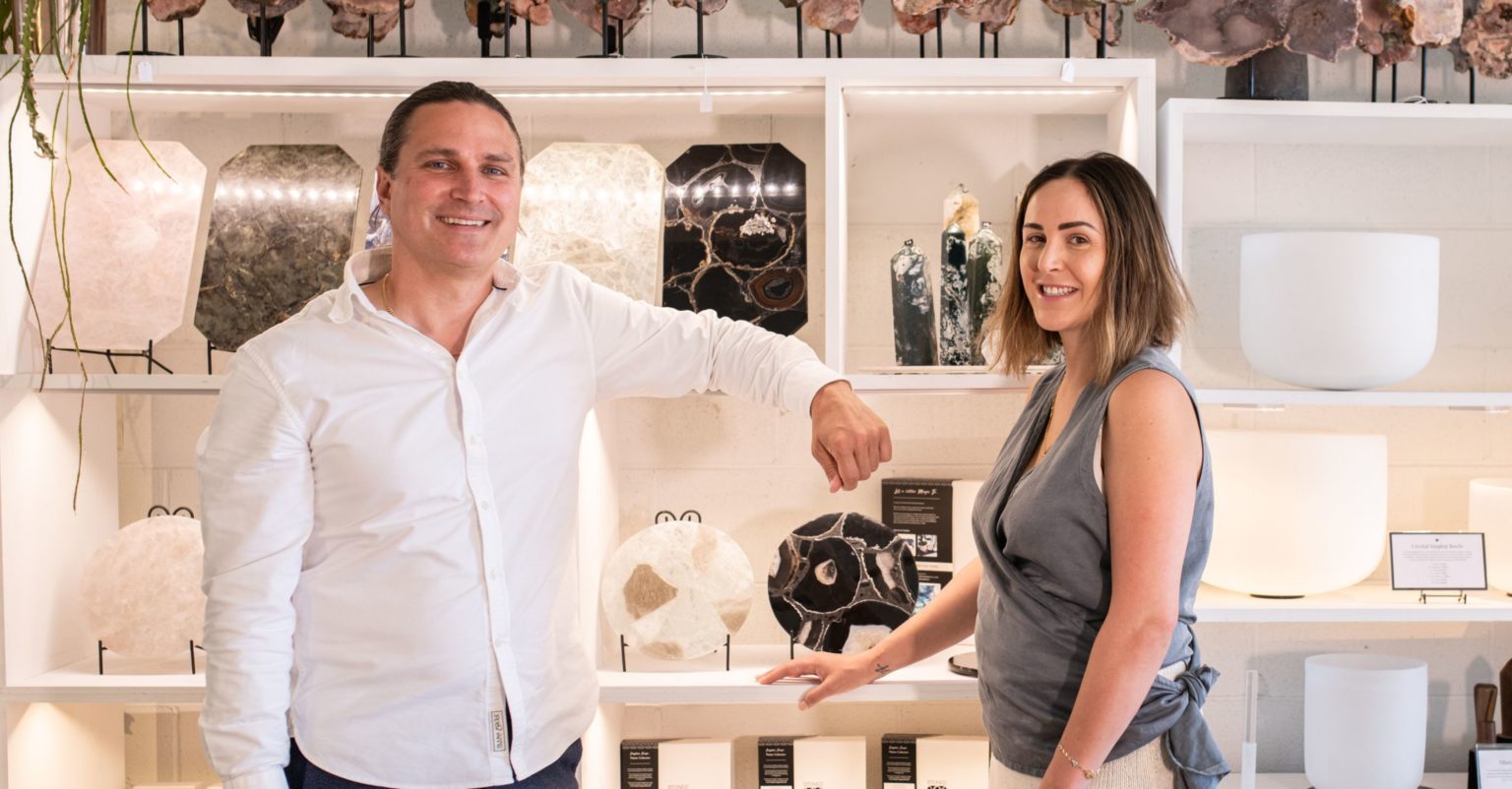With the battle for top talent impacting small businesses’ opening hours and service levels, one retailer is changing its operating model and recruitment tactics.
At a glance
- With more job advertisements than at any time since 2008, and just two job-seekers for each vacancy, employers are facing skills shortages regardless of industry.
- Ashley and Jeremy from Stoned Crystals source talent among their customer base and overseas.
- They’re also changing their operating model to suit workforce limitations.
While small business owners in Australia tell us they are positive about the coming year, with 81% anticipating growth*, hiring the right talent is a major hurdle. The cafe all-rounder you can always rely on and the plumbing apprentice you’d be scrambling without are the lifeblood of so many businesses – but what happens when you simply can’t fill gaps in your business as they arise?
The strain on employers adds to the numerous other challenges, such as increased operating costs and higher inflation – and has them competing with other employers for talent.
According to research from recruitment company Robert Half, almost two-thirds of Australian business leaders say competition for talent is the main reason for skills shortages.
According to data from the National Skills Commission, in the quarter ending March 2022, Australian unemployment and underemployment rates fell to the lowest point since 1974 and 2008 respectively.
More than half of employers were actively recruiting in March, with job advertisements reaching the highest levels since 2008 and the number of unemployed people per vacant position dropping to just two, the lowest since 2008.
So how can small businesses make the most of a challenging scenario, and plug gaps in their workforce?
How Stoned Crystals has changed its approach to hiring
Ashley Bellino and Jeremy LeBard, owners of Melbourne-based retailer Stoned Crystals, are experiencing first-hand the impact of a changing workforce – and they’ve adapted their business and recruitment strategy to suit the market.
When Stoned Crystals recently advertised for a customer service specialist – an essential role for a retailer – it attracted fewer than 50 applicants. This is in sharp contrast to the hundreds of applications Ashley and Jeremy would receive for each position they advertised during the pandemic.
So they have turned to an already-engaged customer base to find the right people to join their team.
“We make shout outs via social media to customers who are buying from us, and the message gets passed along,” says Jeremy. “That was actually more successful than our last recruitment drive on Seek.”
Despite the comparatively lacklustre response, Ashley and Jeremy say that those who do express an interest in joining the business do so because of the business’s values.
Jeremy says applicants approach Stoned Crystals for a change in both lifestyle and work environment, as they endeavour to “pivot out of corporate” to something more personally enriching.
“That’s why I created the business in the first place,” adds Ashley. “I used to work in corporate and decided I didn’t want to be part of the nine-to-five. A lot of people are making changes right now in their careers, and a lot of people come to us making changes from other industries. Moving to wellness is a big trend.”
Ways to adapt to staff shortages
So what future strategies could a small business owner adopt to manage staffing issues? It could start with switching up your business model.
“What we’re moving to now is a model which is becoming very popular,” says Ashley. “Instead of having a shopfront in a retail location, we’re moving to a warehouse – kind of like a furniture showroom.
“Our strategy going forward will be focused more on B2B, which we haven’t been able to do for two years. We’ll get our products back into other stores, and keep our team under one roof too – that’s so much nicer, culturally, for everybody.”
Jeremy adds: “This basically means we’re streamlining to an online business and playing to our strengths, while also accommodating people who like to have an in-store experience. The foot traffic isn’t there to warrant the full staffing – and the staffing is hard to come by anyway.”
Another avenue of sourcing talent is to look for it overseas when local interest proves underwhelming.
With borders having reopened, there are hopes for skilled migration to pick up once more. Even ahead of that happening, however, Ashley and Jeremy have taken advantage of the talent that lies offshore by remotely recruiting one employee from the Philippines, via an employment agency, a venture which they say has paid off.
Recruitment advice
The pair’s advice for other businesses looking to adapt to external pressures starts with looking at the state of play for your entire business.
“Make a plan,” says Jeremy. “If you can’t find the help that you need when you need it, get creative. We’re playing to our strengths – how can you make your business work with the tools that you have?”
When it comes to recruitment specifically, Ashley suggests customer engagement.
“Why not look to customers as a pool of employment?” she asks. “They’re often the most passionate about what you do.”
*YouGov x Prospa small business research, 2022
With flexible, ongoing access to funds, you can confidently manage cash flow fluctuations. Find out how a Prospa Line of Credit can help you take control.








